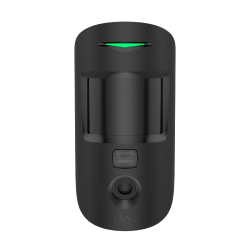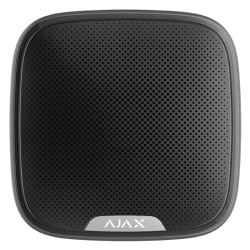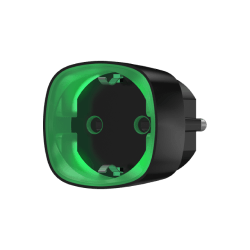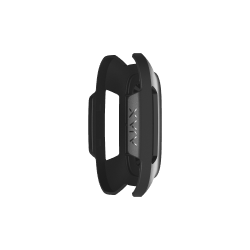Indefinite quarantine and an impending economic downturn have made many of us think about security. Because any crisis inevitably leads to an increase in crime. Even these days, we’ve already received alerts from our partners about a significant increase in the number of burglaries, especially in empty buildings or summer residences. More and more offices and apartments are left unattended every day, adding to the list of potential targets for criminals.
On one hand, protecting your home or business is a complex issue that requires an early investment of time and money. However, if you didn’t have time to prepare a personal bunker in case of a zombie apocalypse, we’ve collected simple and effective measures to protect your home, office, and shop.
Secure the property perimeter
For an apartment, pay special attention to the front door. It must be made of a thick metal sheet and feature hidden hinges and the most expensive lock your budget can allow. With the door lock alarm, you can detect thieves even before they break in. It is also recommended that you install an additional lock, which can only be opened from the inside. With a limited budget, you can even make do with a simple bar. Pay attention to the floor and the accessibility of the windows to outsiders: Those that are easy to get into should be reinforced with bars and the rest with armored film.
If you are going through the crisis in a private house, you might also want to strengthen the gates and the fence. Barbed wire and sturdy padlocks will do the job. If you leave your office or shop empty, don’t forget about roller shutters, extra locks, and window protection. With a few sheets of metal, plywood, and boards from the nearest construction shop, you can make your temporarily idle business less attractive for thieves.
Keep in mind that even the strongest reinforcements won’t hold criminals back forever. Therefore, all these measures will only be effective if you have a security system connected to a security company monitoring station. In this case, the time for breaking in is always limited by the time it takes for a patrol to arrive, and that shouldn’t take more than 10 minutes.
Install video surveillance
Cameras are an important security element, especially for commercial or office premises as well as the area around a house. First of all, video surveillance acts preventively and scares thieves away, being an indicator that a property is under vigilant protection. Otherwise, the cameras will detect the appearance of criminals, their actions, and entry routes, which will help to catch them in the future.
If you don’t want to build a network infrastructure for video surveillance — pull wires and connect an DVR — you can use motion detectors with visual alarm verification on premises. They send a series of photos only if a movement is detected on the protected property.
Provide for emergency communications and notification methods
Not only the property might need protection. In the event of an open intrusion and a threat to personal safety, prepare a panic button. With its help, you will call a security company patrol and inform your family or colleagues about the danger with just a one tap. If there is an alarm keypad at a door, set up a duress code and show your family members or colleagues how to use it.
Set up and schedule the Night mode for the premises’ security. Even if the house is penetrated while you’re sleeping, the security system will raise an alarm.
For those who live in a private house, it would be wise to reinforce a separate room, where they can lock themselves if burglars break in. Depending on size, number of occupants, and budget, it can be either a separate room or a spacious storage room. Install a reinforced door, and place a first-aid kit, additional communication, alarm button, and weapons inside.
Install sirens outside the house. Their loud sound will attract the neighbors’ attention if you are in danger as well as warn other block or street residents.
Don’t panic, and be cautious
Excessive anxiety is the main enemy in an emergency situation. Think through algorithms of actions for possible situations, and prepare an emergency set of things. This will allow you to act calmly if a misfortune occurs. Always remember that panic can affect even the most common activities: closing a door or a window, pulling a key out of a lock, or switching on an alarm.
Maintain not only physical but also informational hygiene. Keep secret where your valuables are being kept. If there is something expensive in an office or a store, and all employees know about it, hide the item in another place or put it in a safe.
Try not to disclose your movements and work schedule. Be responsible with regard to the information you share on social media. Use technology to your advantage. Set up automation scenarios that will imitate your business, including lighting or music, with the help of smart bulbs, sockets, or an alarm.









